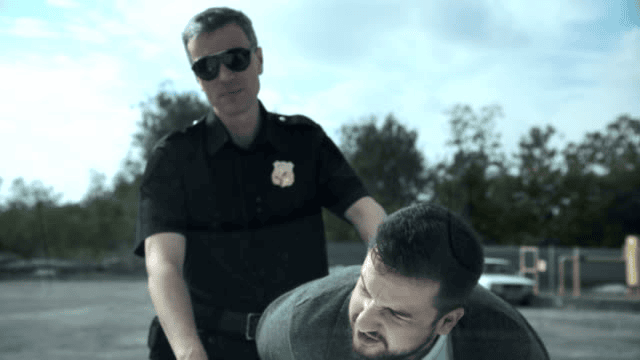Have you heard of the phrase “Miranda rights?” If it’s not familiar to you, this article will explain what these Miranda rights are. The concept of the Miranda warning rights actually originates from the United States.
The Miranda rights are protections that suspects in the United States are entitled to during police questioning. They stem from the Supreme Court case Miranda v. Arizona (1966) and are meant to safeguard individuals from self-incrimination. The Supreme Court held that if the police want to question (interrogate) you, they must apprise you of your constitutional protections.
Additionally, while these rights are constitutionally based in various countries, Australia lacks a federal legislative bill of rights and does not have nationally enforceable statutes that mandate the warnings required for those arrested or detained.
Nevertheless, it does not mean that criminal suspects in Australia have no legal protection. This article will discuss the Miranda rights equivalent in the country and its legal basis.
The Case of Miranda v. Arizona (1966)
What happened in the case of Miranda v. Arizona was that, after being detained at his house, Miranda was recognised by the complaining witness at the police station. After being questioned for two hours by two police officers, he made a written confession.
During the trial, the written and verbal admissions were presented to the jury. Miranda was given a 20–30 year prison sentence for each count of kidnapping and rape after she was proven guilty. The Arizona Supreme Court ruled on appeal that getting the confession did not violate Miranda’s constitutional rights.
The issues in this landmark case are:
- Whether “statements obtained from an individual who is subjected to custodial police interrogation” are admissible against him in a criminal trial
- Whether “procedures which assure that the individual is accorded his privilege under the Fifth Amendment to the Constitution not to be compelled to incriminate himself” are necessary.
The Court’s Ruling
The Court’s ruling affirmed the fact that “there can be no doubt that the Fifth Amendment privilege is available outside of criminal court proceedings and serves to protect persons in all settings in which their freedom of action is curtailed in any significant way from being compelled to incriminate themselves.”
Therefore, the prosecution cannot use statements, whether exculpatory or inculpatory, from a custodial interrogation of the defendant unless it shows that effective procedural safeguards were used to protect against self-incrimination. Custodial interrogation refers to questioning by law enforcement after a person has been taken into custody or significantly deprived of their freedom.
Additionally, the Court highlighted that without adequate safeguards, the process of in-custody interrogation exerts inherent pressures that can weaken an individual’s will to resist and compel them to speak, even if they would otherwise choose to remain silent.
Now, this ruling led to what we now call the “Miranda rights” or “Miranda warnings.” Under these rights, a defendant must be informed before any questioning that they have the right to remain silent, that anything they say can be used against them in court, that they have the right to have an attorney present during questioning, and that if they cannot afford an attorney, one will be appointed for them if desired.

Miranda Rights Equivalent in Australia
Although Australia does not have a federal bill of rights, there are several legislation in each state that can be a Miranda rights equivalent. These are the following:
- Crimes Act 1914 (Cth)
- Law Enforcement (Powers and Responsibilities) Act 2002 (NSW)
- Police Powers and Responsibilities Act 2000 (Qld)
- Criminal Investigation Act 2006 (WA)
- Police Administration Act 1978 (NT)
- Crimes Act 1958 (Vic)
- Summary Offences Act 1953 (SA)
- Criminal Law (Detention and Interrogation) Act 1995 (Tas).
Miranda Rights under the Crimes Act 1914 (Cth)
At the federal level, the officer must inform an arrestee of their right to speak with a friend, relative, or attorney in accordance with the Crimes Act 1914 (Cth). This law is applicable in all states and territories regarding acts committed in the Commonwealth.
Furthermore, it requires that an investigating official must inform the person that they are not obliged to say or do anything, but anything they do say or do may be used as evidence before questioning begins.” (Section 23G)
Law Enforcement (Powers and Responsibilities) Act 2002 (NSW)
The Law Enforcement (Powers and Responsibilities) Act 2002 (LEPRA) aims to consolidate police powers and, importantly, define the safeguards of individuals’ rights during interactions with the police.
Moreover, it aims to achieve a balance between giving law enforcement the authority they need to maintain public order and safeguarding citizens’ rights against arbitrary searches, seizures, arrests, and detentions.
The Miranda rights equivalent under the LEPRA are found in Part 9 (Investigations and Questioning) Division 3 (safeguards relating to persons under arrest and protected suspects) of the Act. Other legal safeguards for arrested persons and protected suspects are also in this Division.
The rights under this Division are the following:
- Custody manager to caution, and give summary of Part 9 to person under arrest or protected suspect (s122)
- Right to communicate with friend, relative, guardian or independent person and Australian legal practitioner (s123)
- Right of foreign national to communicate with consular official (s124)
- Circumstances in which certain requirements need not be complied with (s125)
- Provision of information to friend, relative or guardian (s126)
- Provision of information to certain other persons (s127)
- Provision of interpreter (s128)
- Right to medical attention (s129)
- Right to reasonable refreshments and facilities (s130)
- Custody records to be maintained (s131)

Talk to a Criminal Defense Attorney or Solicitor
Police must follow strict procedures in the LEPRA. Consequently, a lawyer will ensure those procedures were followed correctly, thereby protecting you against unlawful actions from law enforcement officers. To understand more about your rights under the LEPRA, it’s best to consult a legal expert.
Our lawyers at JB Solicitors offer legal services to assist with your criminal procedure and explain your fundamental rights.
We will guide you through every step of the way and help you make informed decisions. Contact us today.
